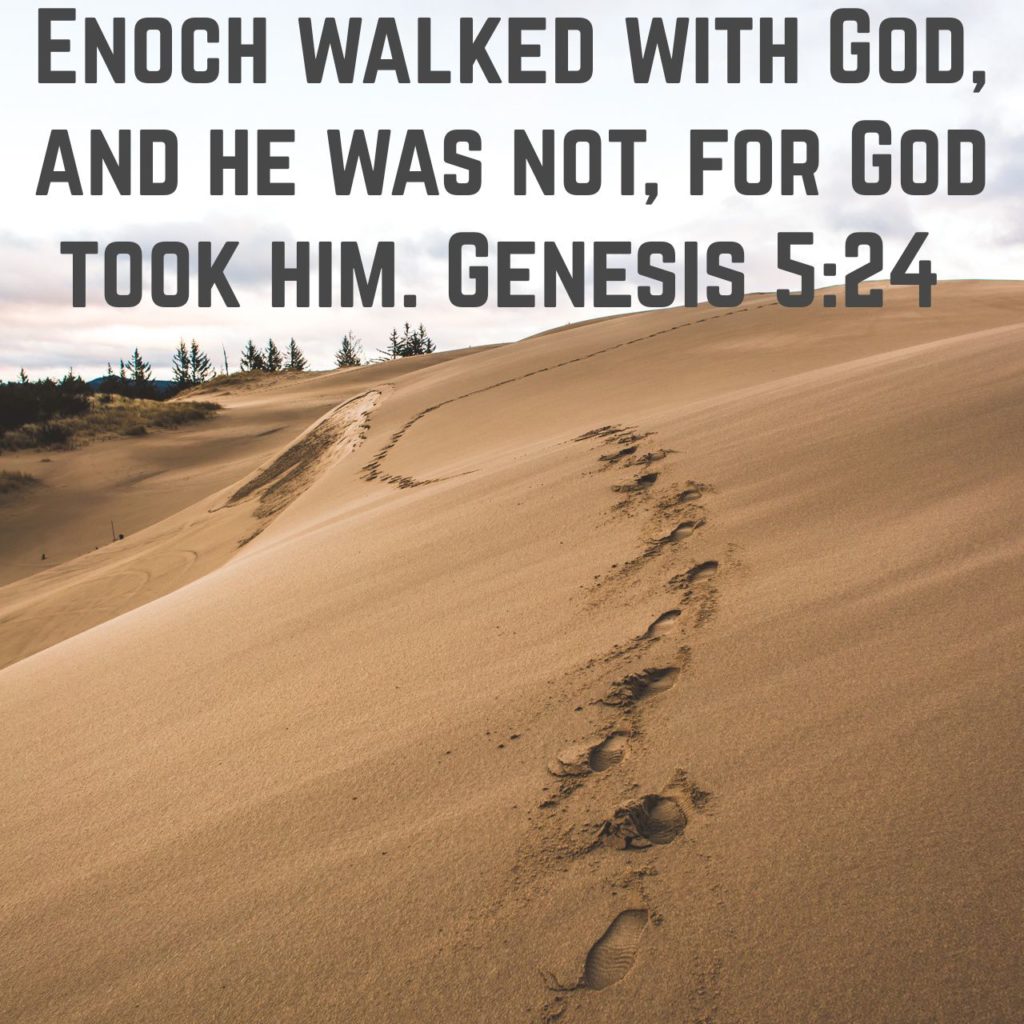
Few figures in the Bible have garnered as much speculation as Enoch, Noah’s great-grandfather. Enoch’s appearance in the Bible is limited to a few verses, stuck in the middle of one of the many genealogies of the Old Testament. This paticular genealogy focus on Adam’s early decedents leading up to Noah, and can be quite boring to read, in the absence of a narrative.
In the midst of this genealogy, Enoch stands out. Everyone else listed in this genealogy is listed in the following fashion: NAME lived for NUMBER years before fathering SON. After that NAME lived another NUMBER years. Then he died.
Enoch breaks this pattern, with his section reading:When Enoch had lived 65 years, he fathered Methuselah. Enoch walked with God after he fathered Methuselah 300 years and had other sons and daughters. Thus all the days of Enoch were 365 years. Enoch walked with God, and he was not, for God took him. – Genesis 5:21-24
At first this does not seem too different from the other people listed in the genealogy, but two main points stand out: 1. Enoch walked with God, and 2. Enoch was taken away, he did not die.
Let that sink in for a moment.
Enoch walked with God, so God took him away.
Now, this realization ignited a flurry of theories about what really happened to Enoch. The most extreme suggested that he became an angel who was on near equal terms with God. At one point an apocryphal work called the Book of Enoch appeared, trying to add details about Enoch’s life, as well the Spiritual realm and it’s relation to pre-flood humanity. Some of these claims ought to be taken with a large grain of salt. However, the fact remains, that Enoch, a fallen man, was able to walk so closely with God, that God spared him from death. It was likely similar to the fashion in which Elijah was taken up.
Evidence of Enoch’s walk with God can been seen in the lives of his descendants. His son Methuselah, lived longer than any other recorded man, 969 years. His name means, “when he dies it shall be sent,” referring to the flood, which happed the same year as Methuselah’s death. Showing that Enoch, who named Methuselah, had prophetic abilities.
Enoch’s grandson, Lamech, also was shown to be prophetic in naming Noah, saying, “Out of the ground that the LORD has cursed, this one shall bring us relief from our work and from the painful toil of our hands.”
And Noah, Enoch’s great-grandson was called by God for being the only righteous man still living. Noah would go on to save the animals and humanity in the ark, during the midst of God’s judgment.
Enoch walked with God, leaving a legacy that lasted several generations. In walking with God, Enoch escaped this world and entered into the kingdom of heaven, without having to taste death. Wouldn’t it be wonderful to have such a close walk with God that God simply chose to remove you from the earth rather than allow you to die? In considering this, I offer the following advice:
1. Seek God. Enoch walked with God in a time when few people did or even could. He was a fallen man, who in seeking God found atonement and forgiveness. Take time each day to seek God in prayer, and begin walking with God.
2. Do not hold on to anything in the world. Enoch would not have been taken away if he had any love for the world. While he had a family, and I am sure he loved them, he loved God far more. This is perhaps the hardest thing to do, but it is worth it. Love God more than anything else, and do not hold to tightly to anything but God.
3. Consider your legacy. Enoch’s life had such an impact on his family, that his great grandson was the last righteous person serving God before the flood. Consider how your life is influencing those around you, and how you want to be remembered. Start living now how you wish to be remembered when you are taken away.
